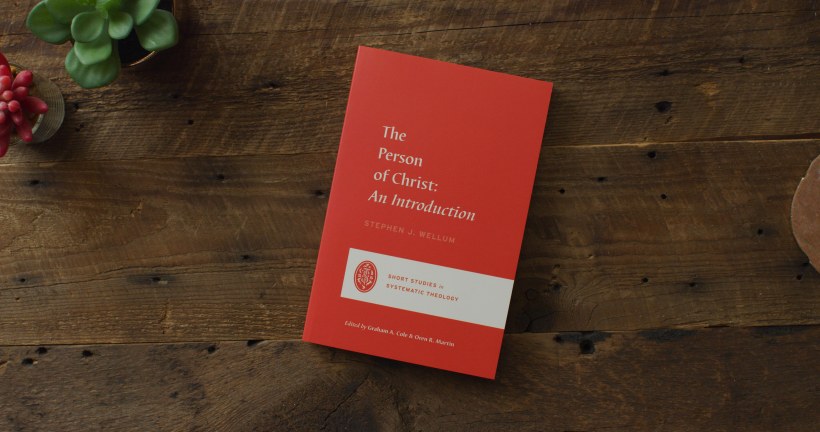As of today, I have been serving in ordained gospel ministry for seven years. In fact, I was ordained at Kosmosdale Baptist Church in Louisville, KY, and just this past weekend they invited me back to teach on the covenant of works for their men’s retreat. While I haven’t been consistent in this practice, I have tried in the past to list a few things I have learned in my time in ministry (for example, two years ago I had five things on a list). Here are seven things about ministry for you to remember as you serve in gospel ministry. These are simply reflective thoughts, and I would agree with things I’ve included in the past, so don’t think of this as the list.
1. Christ is Sufficient
The fundamental truth for all of life, and that includes ministry, is the fact that Christ is sufficient. Before we are ministers, we are Christians, and Christians depend wholly on Jesus. Christ ought to be the object of our adoration, our pleasure, and our hopes. Not only personally, but also in ministry, Christ is sufficient. As our example once said, “I determined to know nothing among you except Jesus Christ and him crucified.” Your people need Christ, even when they say they want something else. They need Christ in the sermons, in the hymns, in the prayers, in the pastoral visits, in the hallway conversations. And Christ really is sufficient.
2. Scripture is Sufficient
It is difficult to count the ways Scripture’s sufficiency may be compromised in ministry. Certainly, a chief way it may be compromised would be by viewing it as insufficient in the task of preaching. But threats to the sufficiency of Scripture appear in ministerial work in particular. What will you do as a church? What activities will you establish? What will your church calendar look like? Scripture is sufficient.
3. Problems are Everywhere
There is no perfect church. This is a simple statement that everyone can smile and nod to, but it is a reality that we must remember, especially in the ministry. It is often the case that brothers assume going into a church with “X” characteristic would make things really easy. For example, and this is one I hear often, it may be said, “If I just get into a confessional church, then everything will be easier.” Now, there is truth to that on some issues (you can freely speak about the Sabbath or the doctrine of God’s gracious election, or etc.), but there are going to be different things to work through, be wise about, and speak carefully. The task of pastoring is basically the same in every context.
4. Christians Love Jesus
This is crucial to remember: Christians love Jesus. The reason it is important to remember this is because, when things become difficult in relationships, leadership, or other areas, it can be easy to grow cynical. Be on guard against assuming that Christians don’t love Jesus. “If they don’t agree to go with me in this area, I don’t even know if they are truly Christian.” I once heard of a church in which the pastors wanted to start a school in the church, and the congregation was resistant. The pastors accused the church of rejecting him like the wicked men who led rebellion in the wilderness, and the church was split. It may be the case that they really were rebellious (I’m not privy to the details of the events myself), but ministers must be cautious about these sort of assumptions.
5. Christians Want to Follow Jesus
Tied to the previous point, not only do Christians love Jesus, but they want to follow him. Again, it would be easy to become distracted by the particular issues and forget that our key task is to lead people to follow Christ. In fact, as hard as it may be, ministers must ask themselves, “Do I want the congregation to do this because it’s simply something I want, or is it because I think it would be more consistent with their desire to follow Jesus?” This takes us back to the first two points as well. Christ and Scripture are sufficient, so the answer to this question should come from Scripture itself. I think Jesus would have us gather on the Lord’s Day, sing his praises, offer prayers to him and in his name according to the pattern he gave us (Matt 6), hear his Word, commune with him and his saints, and give for the relief of his people. Do I want our congregation to do this? Sure, and we do, but that’s not really the point. The point is that it is how together we follow Christ. We must assume that those in the membership want to follow Jesus. They are not Saul kicking against the goads, but believers who have taken up their cross.
6. Unity is a Key Theme in the Scriptures (esp. the NT)
About a year ago, I stumbled across a book by Anthony Burgess called Advancing Christian Unity. I had already been making my way through Philippians, but reading that book caused me to realize again just how much the book is focused on unity. Of course, it’s fairly common knowledge that Philippians is about humility and “other-focus,” so it wasn’t “new” per se. As I reflected on it, I realized just how much the apostolic message is call to unity. Romans, Galatians, and Ephesians all make clear statements about the unity of Jews and Gentiles in the gospel. First and Second Corinthians push us toward unity in very memorable ways. Philippians, of course, includes much content that exhorts us toward a Christ-like (Phil 2) other-oriented humble unity. It’s not just Paul. First John is where we read that you can’t be said to love God if you don’t love your brother. Third John offers something of a berating to those who did not seek unity regarding the missionary brothers. What’s my point? If “pursue unity” isn’t a large part of the minister’s message, he has likely missed a key component of New Testament teaching. As Protestants, it is easy to leave “that unity stuff” to the Papists, who make much of unity. But we must be cautious about abandoning Scripture’s teaching simply because someone else “messed it up.”
7. Doctrinal Compromise is Always a Threat
As we pursue unity in love, and as we assume the best of those to whom we minister, we must remember that doctrinal compromise is always a threat. Compromise does not often come because someone told us to abandon our position. In fact, it often comes because, in gentleness, we soften it. We believe in believer’s baptism, but this person who was baptized as an infant is such a sweet and evident believer. We believe in God’s sovereignty in salvation, but this kind saint is really struggling with seeing how it is consistent with their view of a loving God. We believe Scripture’s sufficiency, but these brothers or sisters want something that “isn’t that bad.” One of the greatest fears I have has been that I would compromise something I believe to be true simply because it is easier and does not rock the boat to go with the alternative.
Conclusion
In the past seven years, the Lord has taught me a lot, but, more than that, he has proven over and over the truthfulness of things he taught me before. Did I already know Christ is sufficient, Scripture is sufficient, that problems exist everywhere, Christians love Jesus and want to follow him, that unity is a key theme of Scripture and doctrinal compromise a constant threat? Of course I did. Nevertheless, these things have remained truths I have found proven as I continue to pray, read and study Scripture, and do the work ministry. I pray the Lord will continue to prove these truths to me for however long he decides to use this vessel of clay to carry forth his rich treasures.

